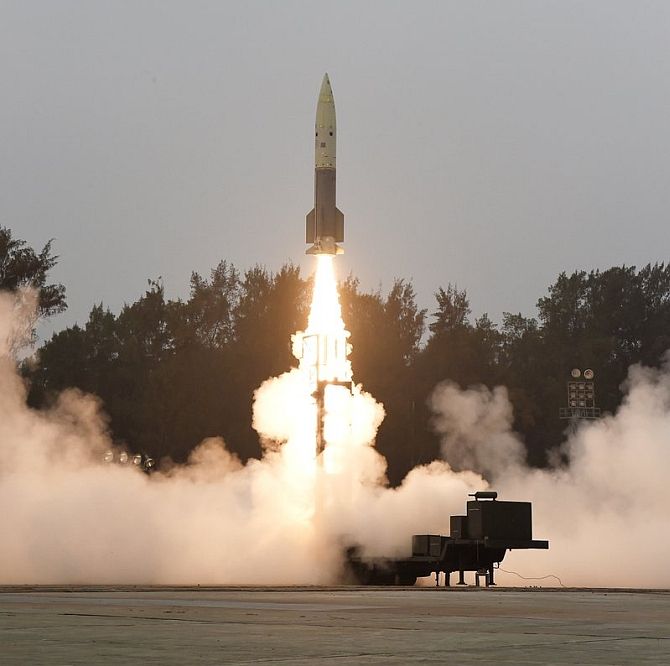India on Saturday successfully tested its interceptor missile off the Odisha coast, achieving a milestone in developing a two-layered Ballistic Missile Defence system.

The country has entered an exclusive club of four nations with developing capabilities to secure its skies and cities against hostile threats, an official statement said after the test in which an incoming ballistic missile was intercepted by an exo-atmospheric interceptor missile off the Bay of Bengal.
With this commendable scientific achievement, India has crossed an important milestone in building its overall capability towards enhanced security against incoming ballistic missile threats.
Prime Minister Narendra Modi and Defence Minister Manohar Parikkar lauded the efforts of the DRDO and all the scientists.
The interceptor was launched from Abdul Kalam Island (Wheeler Island) of ITR at about 7.45 am, a Defence Research Development Organisation official said, adding that the mission, termed as "PDV mission is for engaging the targets in the exo-atmosphere region at an altitude above 50 kilometer of earth's atmosphere."
"Both, the PDV interceptor and the two-stage target missile, were successfully engaged," he said.
The target was developed mimicking a hostile ballistic missile approaching from more than 2,000 km away launched from a ship anchored in the Bay of Bengal.
In an automated operation, radar based detection and tracking system detected and tracked the enemy's ballistic missile.
The computer network with the help of data received from radars predicted the trajectory of the incoming missile.
The PDV that was kept fully ready, took-off once the computer system gave the necessary command. The Interceptor guided by high accuracy Inertial Navigation System supported by a Redundant Micro Navigation System moved towards the estimated point of the interception.
Once the missile crossed the atmosphere, the Heat Shield ejected and the IR Seeker dome opened to look at the Target location as designated by the Mission Computer.
With the help of Inertial Guidance and IR Seeker, the missile moved for interception. All events were monitored in real-time by the Telemetry/Range Stations at various other locations, the statement added.











 © 2025
© 2025